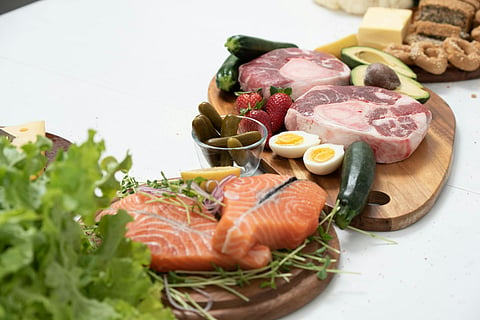
- LIFESTYLE
- FASHION
- FOOD
- ENTERTAINMENT
- EVENTS
- CULTURE
- VIDEOS
- WEB STORIES
- GALLERIES
- GADGETS
- CAR & BIKE
- SOCIETY
- TRAVEL
- NORTH EAST
- INDULGE CONNECT

Protein is essential to the human body, but experts say most people are already getting enough—without the need for fortified snacks or expensive supplements.
From granola bars to milkshakes, popcorn to pancakes, added-protein products are everywhere. It’s easy to assume more protein means better health. But according to leading nutritionists, the reality is less hyped: unless you have specific dietary needs, you’re probably getting plenty already.
“Adding protein to foods is very beneficial—for the profits of that food,” says Dr Federica Amati, nutrition lead at Imperial College London and head nutritionist at ZOE, a health science company. “It is not based on health, it is not backed by science.”
Protein is one of the three key macronutrients your body needs to function—alongside fat and carbohydrates. It plays a critical role in building and repairing tissues, supporting immunity, and regulating hormones. Your body assembles protein from smaller molecules called amino acids.
While many amino acids can be made by the body, nine of them—known as essential amino acids—must come from food. That doesn’t necessarily mean you need high-protein versions of everything you eat.
According to the British Nutrition Foundation, most adults in countries like the UK and US already exceed their daily protein requirements through normal meals. The recommended daily intake for an average adult is about 0.8 grams of protein per kilogram of body weight. For someone weighing 60 kilograms, that’s around 48 grams per day—easily met with a balanced diet.
“It’s a myth that we’re walking around protein-deficient,” says Bridget Benelam, a spokesperson for the British Nutrition Foundation. “Unless you have specific health concerns, you don’t need to add more.”
Many products in today’s market boast high-protein content. But nutritionists caution that this is more about marketing than health.
“People need to look closely at the ingredients list,” says Amati. “Protein bars and fortified snacks are often packed with sugar, saturated fat, and additives. You might be better off with a boiled egg or some yoghurt.”
Even for those trying to improve fitness or body composition, she argues that a bar won’t replace proper training.
“If you’re worried about your body composition and muscle strength, you have to lift heavier weights and give your body a challenge,” she says. “Eating a protein bar is not going to help.”
There are groups who do need to be more conscious about protein intake—children, older adults, pregnant individuals, and those with certain medical conditions or recovering from illness. Athletes and those engaging in intensive physical training may also have higher protein needs, but these are best assessed with the help of a qualified nutritionist or physician.
Still, for most of the population, standard meals that include foods like eggs, dairy, legumes, fish, nuts, seeds, and whole grains are more than adequate.
“Because protein is so important, our body has adapted really well to making sure that it can reassemble and change the building blocks of amino acids to make sure we have what we need—as long as we’re eating enough food,” says Amati.
In other words, the best way to meet your protein needs isn’t by chasing fortified labels, but by maintaining a well-balanced diet overall. And if you’re unsure? A visit to a qualified dietitian will likely offer more benefit than a protein smoothie.
So, the next time you see a protein-packed pancake or a 20-gram bar at the till, take a pause. You may not need it—your body is likely already doing just fine.
For more updates, join/follow our WhatsApp, Telegram and YouTube channels.